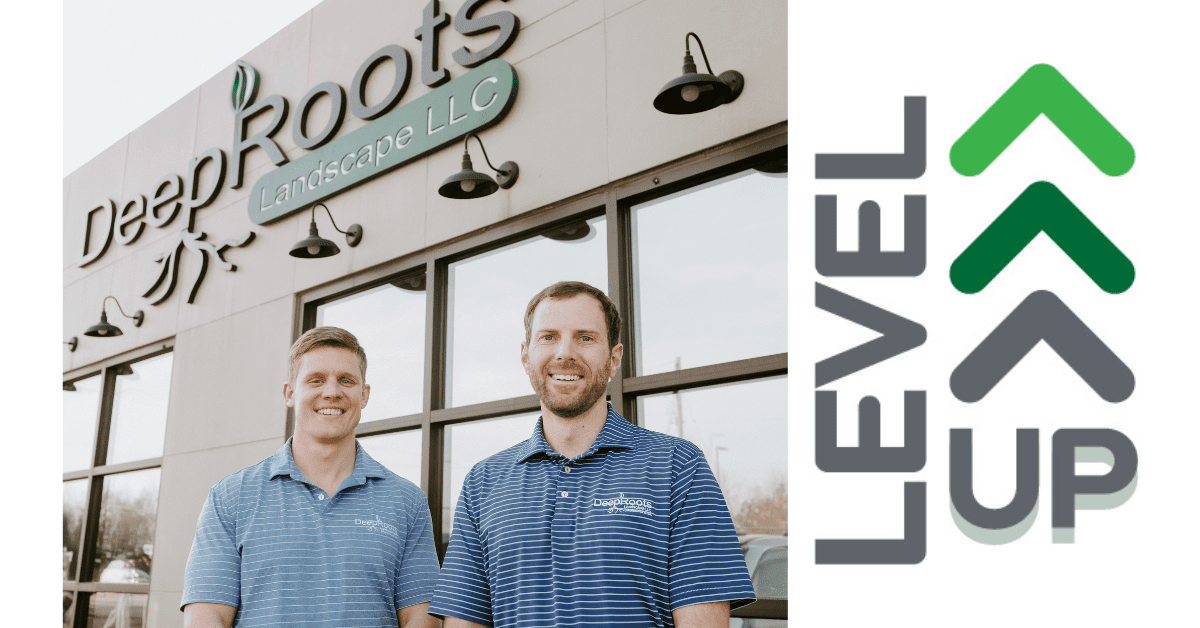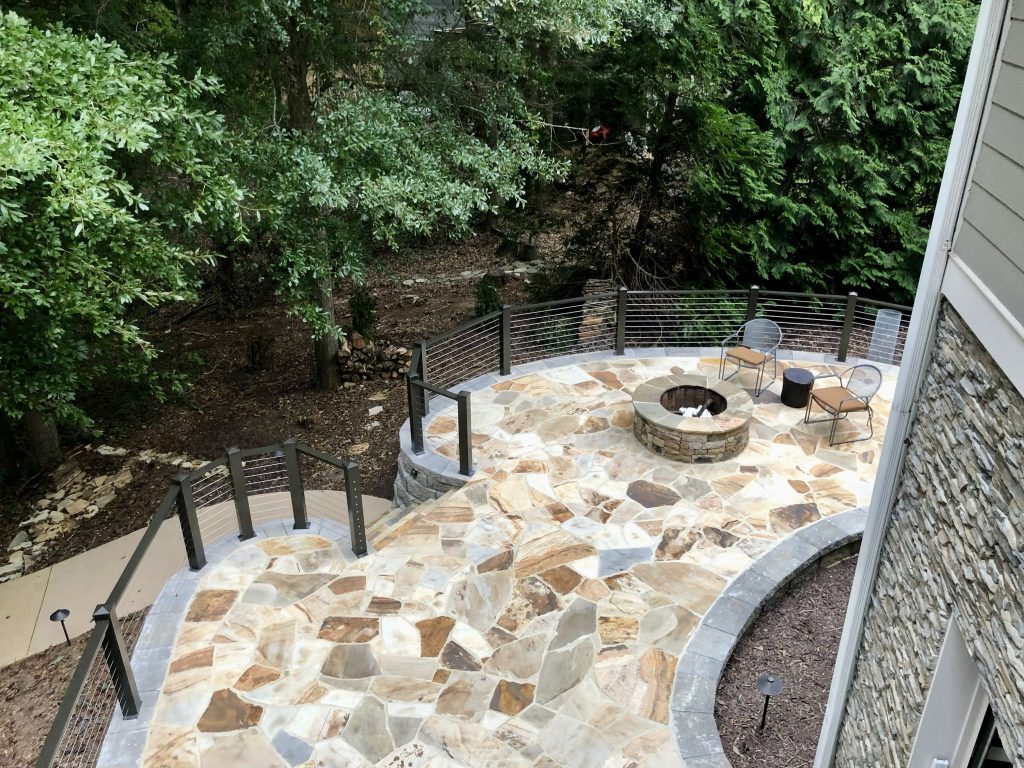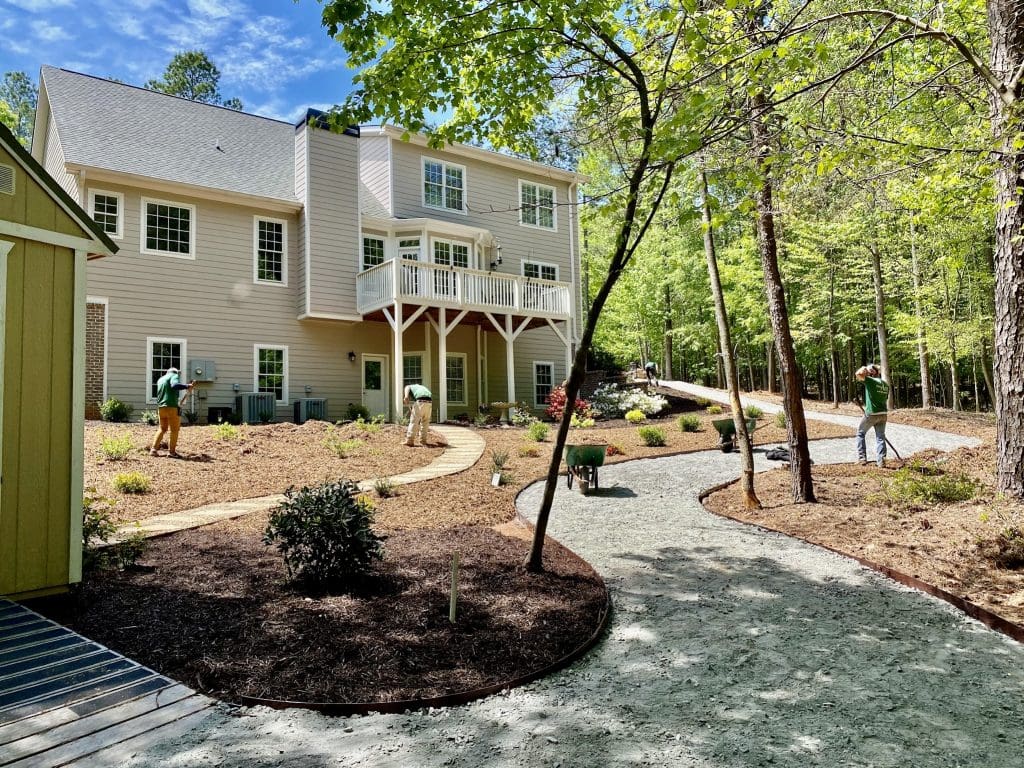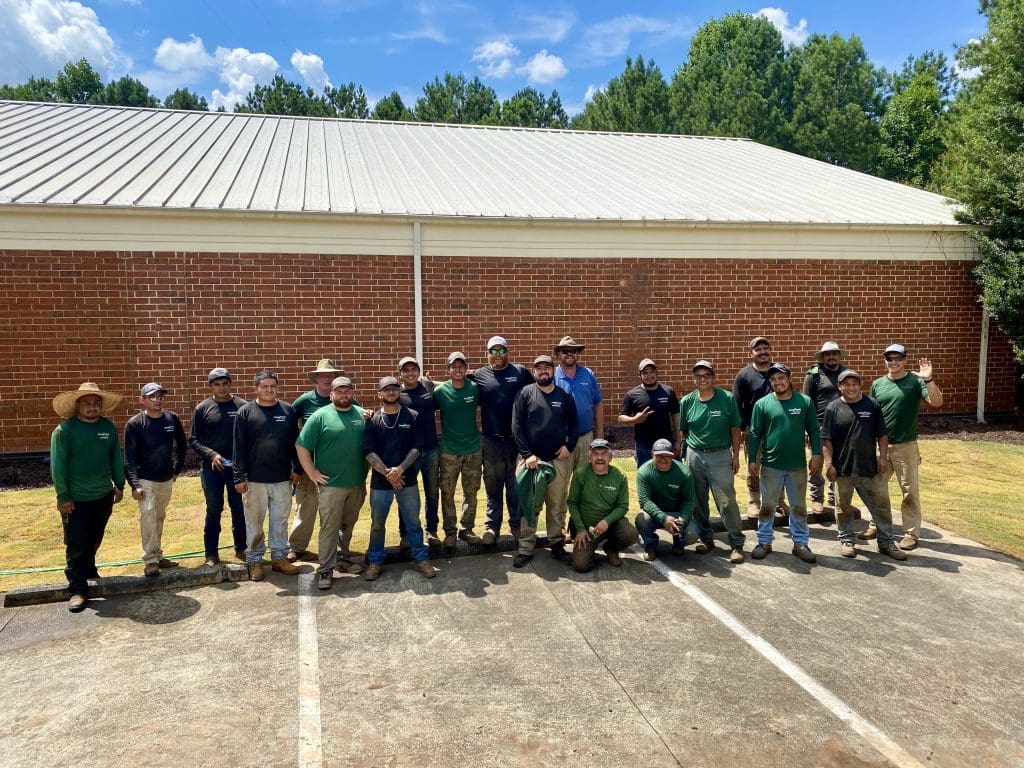
As early as elementary school, John Baxter and Ben Filchak were talking about owning businesses and working together.
Baxter started cutting lawns in middle school and continued all the way through college. While he attended the University of North Georgia studying business management, he took a course on small business and created a business plan. After graduating, he took elements from that plan and started Deep Roots Landscape, LLC, based in Clermont, Georgia, in 2010.
Filchak joined Baxter a year later after graduating from the same school.
“He was unsure of exactly what he wanted to do, but I convinced him that we could make this company into something,” Baxter says. “One of the great things about working with Ben is that we both have very similar values and visions for how the company should be run. We have a lot of overlapping skills as well as specific skill sets that allow us to work well together for the vision of the company. We balance each other out well.”

Deep Roots serves around 65 percent high-end residential clients and 35 percent commercial customers. The company has a diverse set of service offerings, including everything from installations to maintenance and hydroseeding. Baxter says their design/build work makes up the bulk of their work and revenue right now.
“Ultimately, we want to be able to take a customer from a new installation project to a long-term maintenance customer,” he says. “We value relationships in business and want to do what we can to be a part of our customers’ lives for a long time.”
Last year the company’s annual revenue was $4.85 million, and they are projecting to do $5.5 million this year. Baxter says their overall goal is to reach the $12 million mark.
Growing Through the Pandemic
Typically, Deep Roots has had steady growth around 20 percent over the years. Baxter says in 2020 they lost some revenue early on and then it took off. He says they were expecting business to drop off during the pandemic and were looking for ways to cut expenses.
He says after the first few months of decreased revenue, the phone started ringing more than ever as people wanted to make improvements to their landscapes.

“Between 2019 and 2021, we more than doubled in size, going from $1.7 million in revenue to $3.9 million,” he says. “That percentage of growth was something we were not prepared for. That put us on a different level very quickly and it took a lot of trial and error to get things moving in the right direction.”
He says growth has leveled off a little since mid-2022, but they’re still growing around 20 percent. The company continues to add services like mosquito and tree and shrub programs through their spray department.
“We want to be the one source solution for all landscape needs,” Baxter says. “During the heavy growth times, we invested heavily in the landscape install sector. We hired a landscape designer and got into some in-depth projects. Watching the scale of jobs we can do now has been fun.”
They also started Canopy Tree and Land Company, LCC in the late fall of 2020.
“The primary reason for Ben and I being involved with the tree company was due to our customer needs,” Baxter says. “We were always trying to find a company that could show up when they said they would and do a really good job for our customers. As our installation projects grew in size, our need for tree pruning and removal increased.”
Baxter says they wanted it to be a separate entity to be able to take on additional customers like other landscape companies without having to worry about ties with Deep Roots.
Keys to Success
Baxter says their company’s success comes down to doing what they say they are going to do, continuously improving, and caring for those around them. He says this echoes their core values of excellence, purpose, integrity and care.

As their company grows, he says they work to maintain their company culture by being present and keeping a pulse on things.
“Growing at a relatively slower rate has also helped us be able to keep the culture we want,” Baxter says. “Another huge thing that has helped us in the past year has been our C12 peer advisory board. That has allowed us to develop our leadership with help from a group of people focused on business excellence and growing our businesses to have an impact on people.”
He says three years ago, they joined NALP, and before then, he didn’t know there was an organizational body with that much information and benefit to the landscape industry.
“Having standardized methods and industry journals has been so good for us in allowing us to know where the industry is headed and to connect with like-minded people,” Baxter says.
He says one of his favorite NALP resources is the toolkits.
“We use that often whether it be human resources, business management, finance, training resources,” Baxter says. “They are all very handy to use. We also have benefitted from the financial benchmarking tools. Knowing what others in the industry are doing from a financial perspective is very helpful. We have not made it to ELEVATE yet, however, that is on our list!”
Recruiting and Retaining Employees
Baxter says the biggest challenge they have revolves around the labor market.
“I think that will continue to be a challenge,” he says. “We don’t want to get in a place where we accept that, though. We are constantly challenging ourselves to look outside the box to find innovative solutions.”

They currently employ around 36 team members and ramp up to 55 to 60 during the peak season.
Deep Roots has also been utilizing the H-2B program since 2018. Baxter acknowledges the program is risky as they’re never sure they’ll get their workers, but says it’s the only way they’ve been able to keep up with their growth. This past year they brought 18 H-2B workers.
Baxter says they recruit using everything from Indeed and Instagram to Facebook and newspapers.
“We have also done job fairs, and post ‘now hiring’ signs in front of our office,” Baxter says. “I have recently been involved with the work-based learning programs through the high schools to build relationships with educators and establish programs that lean towards the green industry.”
He says they are able to retain their staff by showing that they are cared for. They host quarterly breakfasts where they discuss their core values, as well as several other company events throughout the year.
“We also make it a point to show how one can better oneself and grow into larger roles within the company,” he says. “We do what we can to create an environment of trust between everyone and ultimately build a company where people enjoy coming to work because it’s not just about landscape; it’s about impacting lives.”

